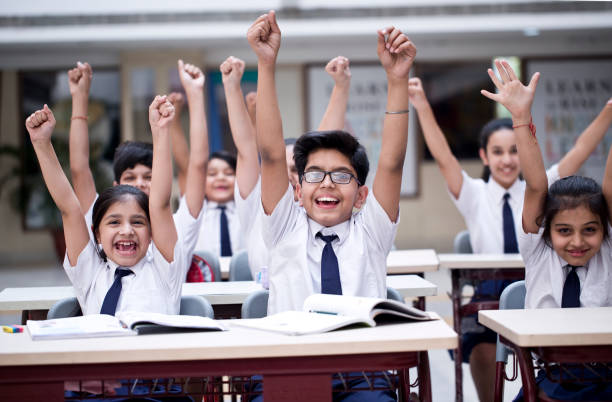Shopping Cart (0)
Your cart is currently empty.
TRIPLET30: 30% off on purchase of 3 books
Your cart is currently empty.

Of all the negatives, one of the positives that has come out of the Covid-19 pandemic is the realisation of the importance of schools. Parents faced quite a struggle, trying to balance work with their children at home, making them realise the caretaking role played by schools. Parents also found it difficult to teach children all that a school teacher would otherwise have taught them, thereby increasing the sense of gratitude for teachers.
The experience of remote schooling widely varied when it came to the academic and social experiences of children. Students with special needs struggled as they were cut off from their exclusive resources, while on the other hand, an environment with fewer distractions of friends and other activities helped children thrive. Schools, especially those catering to the weaker sections of society witnessed an increase in drop-out rates and caused a huge learning deficit in those students who remained.
Transformation in education
The traditional classroom has witnessed some transformational changes too. Computer screens have taken over, the method of teaching, attendance, examination have been altered, and technology has played a crucial role. All these changes would not have been tried and tested, had it not been for the pandemic, and many of these changes are here to stay. The digital mode of education has a few disadvantages including the overuse of devices, or the education inequality caused by the digital divide with few having access to the required means. Despite these, it is slowly becoming the new normal.
Lack of outdoor activities
Another effect of the pandemic was that when schools were shut, children were deprived of the opportunity of playing, running, or any kind of physical activity. Parks and other play areas were restricted too and they were confined indoors. This compromised with the fitness in children and despite schools reopening, the levels of fitness and physical activity haven’t resumed back to the pre-pandemic levels.

Oblivious to the idea of a school
Younger kids took a long time or couldn't get used to the idea of online classes and struggled to study. Understanding basic concepts while getting used to the idea of online schooling was a situation no one foresaw.
Being back to school has put them off-balance. They are required to learn a zillion things all at the same time.
Teachers should put in that extra dose of patience while dealing with pre-schoolers rather than asking them to repeat a grade. Going back to school or even going to school for the first time after being homeschooled has been another major challenge as the acclimatisation of the idea of a classroom was a struggle. Being away from school for so long or not knowing about the idea of a school caused mixed feelings in children. Those who missed school were delighted to reunite with their friends, while the others showed worry and anxiety about coping with a school routine.
Teaching beyond textbooks
The pandemic has made schools realise that it is more important to impart soft skills than merely teach what the textbooks suggest. Being indoors has made children lose the art of interaction with others, depriving them of human connections and the required social skills. It has become the need of the hour to teach them manners, the art of conversation, and help them become social beings.
Increased independence in children
On the brighter side of things, children have grown to become more independent post the pandemic. They have expressed a keen willingness to learn and do new things. Compared to their attitude prior to the pandemic, they have now opened their wings, and are ready to take a leap of faith.

The silver lining
One thing that the pandemic made us realise is that the conventional mode of education of classroom teaching is still the best, with technology being an enabler. As educational institutions adopt newer technologies, the teaching staff will have to be trained to make its use impactful. Not everyone believes online education to be a substitute for traditional classroom learning, However, a balanced blend of hybrid education - a phygital world - classroom sessions and pre-recorded classes could take pressure off the teachers and help them channelise their energy in making classroom teaching more effective. New ideas and initiatives are always welcome and can be motivating for teachers who have been facing a rather tough time too. Educational institutions need to embrace this new normal system in order to survive and move ahead with times.
You have no items in wishlist.
We will send you an email to reset your password.
| Title |
|---|
| Price |
| Add to cart |
| Type |
| Vendor |
